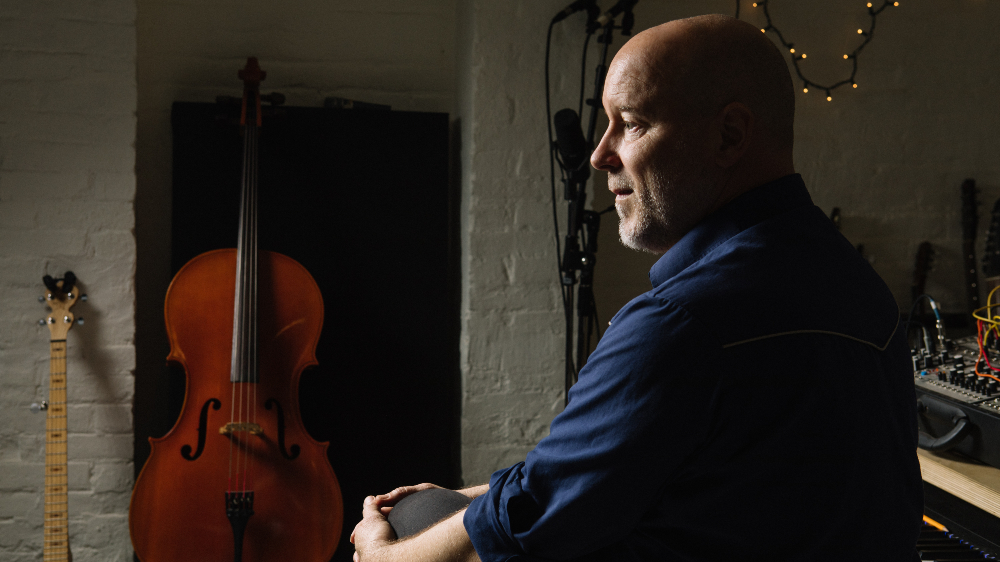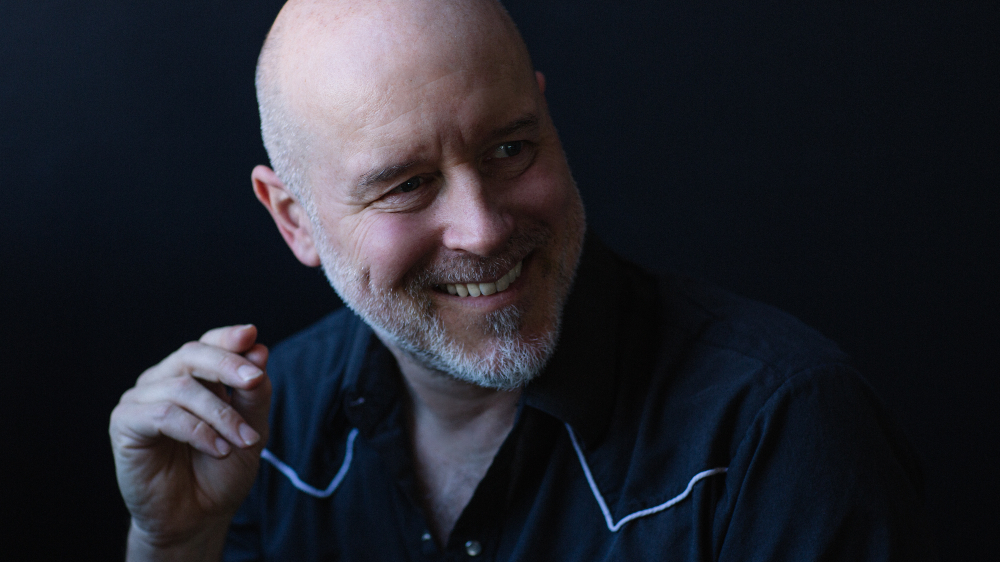
Ramin Bahrani, the acclaimed filmmaker behind Man Push Cart, once again returns to the documentary format with the Sundance entry 2nd Chance, which premiered to strong reviews this past week.
The film chronicles the life of Richard Davis, the colorful-yet-controversial man who invented the concealable bulletproof vest. Remarkably, Davis shot himself 196 times over the course of his career in an effort to prove the effectiveness of his vests — something that eventually, pardon the pun, came under fire.
Bahrani is armed with a great documentary subject in Davis, whose story is really interesting. One of the people who helped Bahrani tell Davis’ story was composer T. Griffin, who has worked on hit documentaries such as Boys State and Street Gang: How We Got to Sesame Street. Griffin had to find the right instrument to convey the full weight of this sometimes-tragic tale, and he settled on the bassoon, which offers a “medieval” sound that felt appropriate for the film.
Griffin is based in Brooklyn, but you can find him in Park City, Utah most Januarys, though he laments not being able to see his last two Sundance movies with festival audiences due to the pandemic. The composer recently spoke to Below the Line in advance of the festival, so please enjoy our chat below!
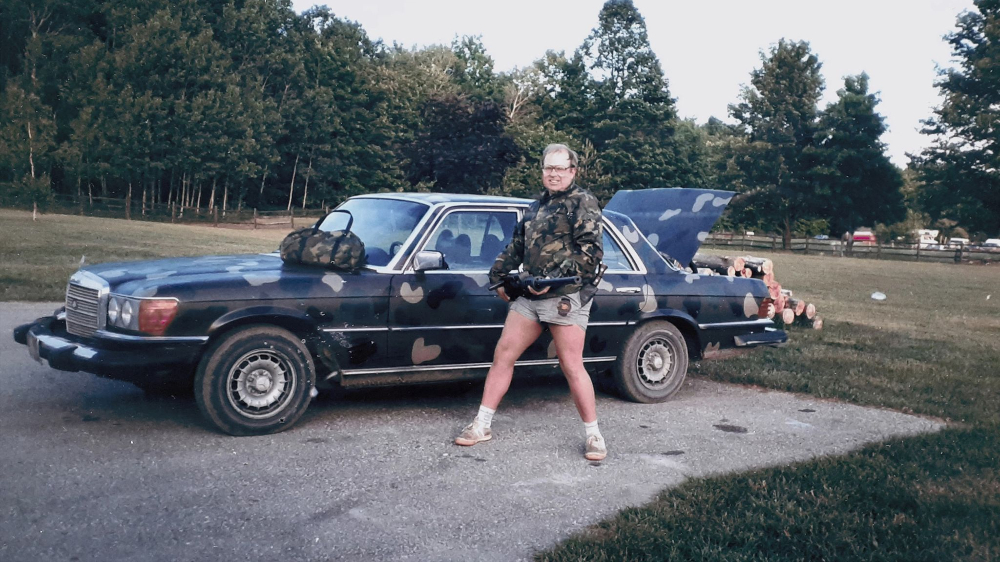
Below the Line: How did you first get involved in this project?
T. Griffin: 2nd Chance I got involved with, really, through the film’s editor, Aaron Wickington, who I have worked with a bunch before. He’s a really fantastic documentary editor, primarily. So he called me and he said, ‘I’m working with Ramin Bahrani on this film, would you want to talk with us?’ This was back in the summer, and I knew Ramin’s movies from way back, from, like, Man Push Cart and his late ’90s/early-2000s films, and I was a fan, so I was definitely excited to talk with him.
BTL: What was your initial take on Richard Davis, and does your personal opinion of a documentary’s subject affect how you compose music?
Griffin: Yes, I mean, it does. I think that a lot of times when I’m scoring a film, I’m really looking for my connection to the subject, to the world, and really, to what is driving the director, and what the director’s interest is, and [what their] connection is. I’m really trying to draw a line between my sort of emotional connection with the film to the director’s because I feel like that’s the way I can do the best work, in collaboration.
And I think part of that comes from the fact that I started out, actually, as an actor — in the first part of my career, I was an actor — and I feel like I approach scores in a sort of similar way, in that I’m really looking for a way in emotionally, and everything else follows from that, every choice about instrumentation, about style and whatever, follows from that.
So when I watched the rough cut of 2nd Chance, which was quite rough and it was sort of a late assembly, I just really fell in love, actually, with the sort of constellation of characters around Richard Davis. I just found them so fascinating and warm, and that sort of upper midwestern world felt very familiar to me. My parents are from the Midwest and I lived in Minneapolis for a while, so I sort of connected with the world, and then the idea of this central figure who is sort of drawing these people together and pulling people into his whirlpool of good and evil, I just immediately recognized that world and recognized what was pulling Ramin into it.
BTL: Talk to me about your process with Ramin and what he asked of you with this score. Was there a sound that he was trying to capture?
Griffin: Yes, I would say there are basically two parts to that. One is that it was very important to him, and therefore to me, that the film lets the characters be themselves, including Richard Davis, without judging them or condescending to them, all of these things that really allow the full humanity of the characters.
How that applies to the music, well, that’s where our personal interpretation comes in, but that was always the touchstone. And [Ramin] wanted Richard Davis to be his full self and really have a voice in the film, and as we started working, it really became clear that we needed Richard to have an instrument. I’ve always kind of avoided that approach because it feels just a little obvious to me, like a little kind of Peter and the Wolf, so I don’t usually think like that, but Ramin said ‘no, he really needs to have a voice and the rest of the music around that voice is sort of all the perspectives we’re gathering from other people.’ So we played around with a few different things, I played guitar, and he said, ‘I really want something that’s more unusual.’
And so I’d been working with this bassoon player, Joy Guidry, on another project, and I said, well let’s try bassoon. Like, that would be weird.’ So I wrote some stuff for the bassoon, and a lot of the other instruments that I had started out trying were much more traditional Americana sounds, I had pedal steel on there and, I was playing guitar, and when we married the bassoon with the pedal steel, everything just popped because they were an unusual combination, and the bassoon has such a kind of weird, almost medieval sound to it that it just really said, “Richard Davis” to us. And then from there, everything spoked off of that little key. That was the key that sort of unlocked everything.
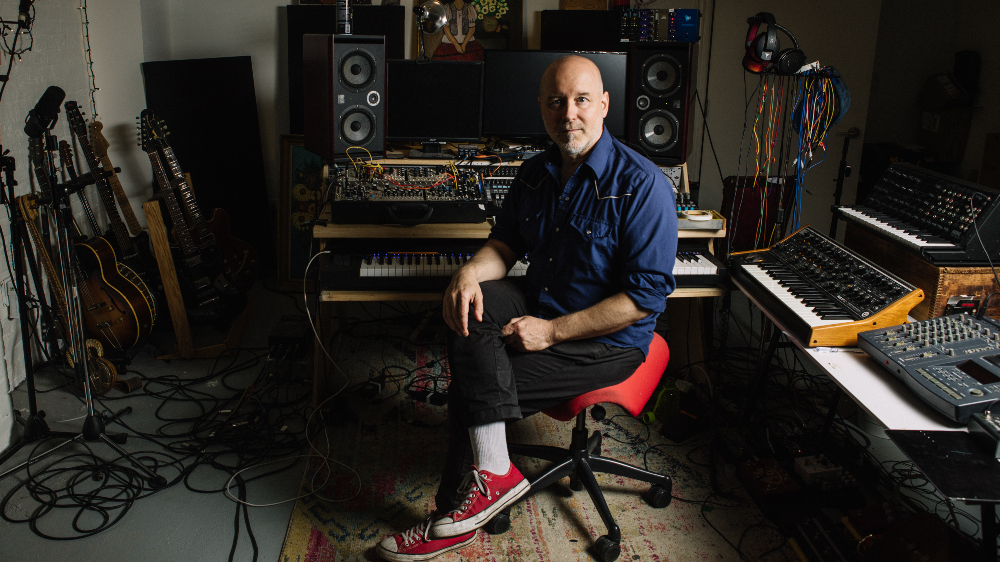
BTL: What is the key to a successful documentary score?
Griffin: First of all, I’d say that documentary encompasses so many different approaches and genres, I feel like there are more differences within documentary/non-fiction film than there are between documentary and fiction. Like, the fact that it’s a documentary sort of disappears for me pretty quickly, but in a film like this, which has a voiceover from Ramin, so it’s really an essay film in a lot of ways, and I think that successful scores in films like this are ones that can both be very present at moments and then recede and continue sort of a feeling without getting in the way of what other things you’re listening to.
This definitely was a film that was sort of stitched together from interviews and archives, and a little bit of verité, so the music is really going to be important for stitching those worlds together. There’s a lot of music in this movie, and my hope is that it doesn’t seem like there’s a lot of music in the movie.
BTL: So how was this assignment different from some of your past doc work like Boys State and Street Gang and Life, Animated?
Griffin: Well, I mean, it was different in that there were different people involved. I try to approach things as freshly as I can. I would say that Ramin was very clear in his desire to have a structure to the different voices in the film, like the bassoon is really Richard’s voice, and the pedal steel created an almost choral sound, so that was something that, to us, really represented the community around Richard.
BTL: Have you ever asked someone for a second chance, or conversely, have you ever granted someone a second chance? You can pick how you’d like to interpret that one.
Griffin: I’m very glad that I’ve never had to shoot anyone, and never had to defend myself by shooting anyone. I’d say that was one of the things that really captivated me and one of the things that really surprised me, particularly in the last third of the film, where [there] all of these questions about forgiveness and ‘how far do you go to forgive someone?’ and ‘are there people who are sort of beyond redemption?’ I think that, when I was looking for the sort of prime driver for Ramin, Aaron and I as collaborators, I feel like that was really the secret engine behind the whole project — looking for these ways in which community and forgiveness are possible, or not possible, when the world is full of Richard Davises.
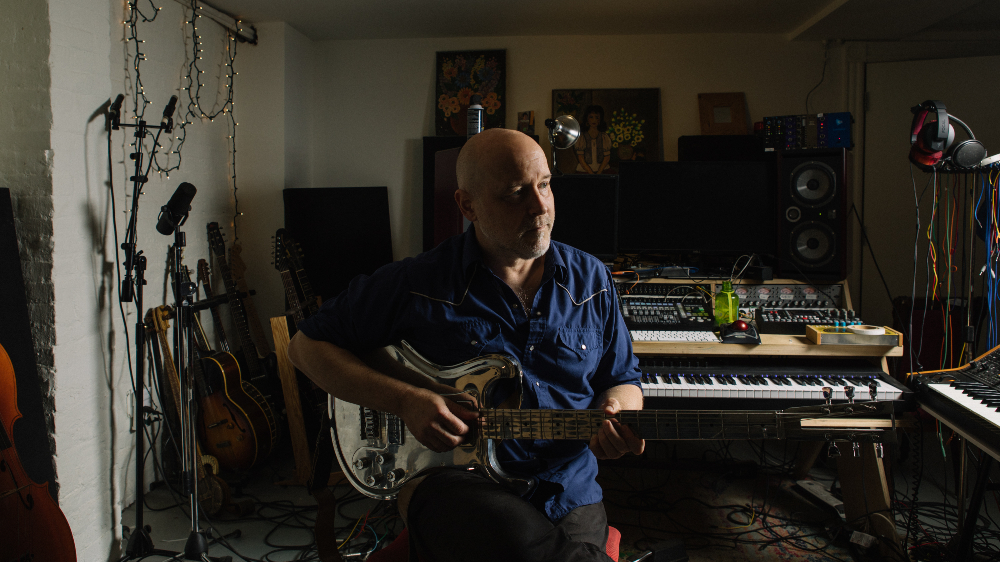
BTL: What are some of your favorite film scores, and who are some of your favorite composers?
Griffin: I came into film scoring sideways. I was an actor and then I was in bands and stuff for a long time, and I would say that my introduction to film music was actually not from films as much as it was this band Godspeed You Black Emperor. I became friendly with the members back in the early 2000s and they were very influenced by classical music and film music, and my fascination with that band really drew me into a lot more instrumental music and film music in particular.
I would say that right now, I encounter other contemporary film composers most often as temp in things I’m working on, because I don’t actually have a whole lot of time to watch movies for pleasure, and of those, I’ve gotta say, I’ve been watching The Green Knight, which is scored by Daniel Hart, and I’ve encountered his music in temp on things I’ve been working on a few times and kind of been intrigued by it, but that just blew me away, the way music worked in that film. I just fell in love with it.
Similarly, the Haxan Cloak guy, Bobby Krlic, who did the Midsommar score, I just absolutely loved that, as well as Jonny Greenwood scores, especially the ones that came out this year, Spencer and The Power of the Dog. I love the way his scores are done. I love the writing but I also love the way they’re recorded and produced. I think it really elevates a lot of what’s done in film music.
BTL: I completely agree, and it’s funny, the last composer I interviewed mentioned Jonny and Bobby as well.
Griffin: It’s funny, they’re people who don’t come through the film scoring mechanism, or industry. They’re not people who said, ‘I want to grow up and score movies.’ And I think that that’s a really valuable perspective. Another one that I watched a few months ago is A Woman Under the Influence, the John Cassavetes movie. I love the way that that [score] works. I think there’s a cue early on that’s Bo Hardwood singing and playing the piano, which if I’m not mistaken, was actually a sort of demo recording he had made for Cassavetes, trying to describe what it would be like when he had a full orchestra or whatever, and Cassavetes just loved the cassette tape, so that’s what’s in the movie. I just think that whole film, the way the music works, is so special. Another person who was not a [traditional] film composer, I think.
BTL: Have you been to Sundance before and were you planning to travel to this year’s festival?
Griffin: I’ve had movies at Sundance every year since 2009, and I’ve been every year, so last year was the first year I didn’t go when I had a movie there. And yes, I would’ve gone, but then I probably would’ve gotten COVID and gotten stuck in Utah.
BTL: With Sundance going entirely virtual again, what is the thing you’ll miss most about being in Park City?
Griffin: Just sitting in the theater with people watching the movie. It’s such a special experience and I feel like you never, ever can experience what you’re spending all this time doing in any other way that feels as meaningful. To sit in a packed theater with an audience seeing the film for the very first time is really beautiful, it’s a really emotional thing. I missed that for Street Gang. Boys State was the last movie I got to see like that, and that was one of the best premieres of anything that I’ve ever been a part of. People were just going bonkers, and it was so, so exciting. It’s funny, that was one where we knew it was good, but we didn’t necessarily know that other people would think it was good, and there’s so much anxiety that goes into making a movie, being in an audience that loves it is an overwhelming feeling.
BTL: What was the last concert you attended?
Griffin: Probably [avant-garde trumpeter] Jaimie Branch’s FLY or DIE over the summer at Pioneer Works in Red Hook, Brooklyn [where Griffin is based]. I’ve gone to some clubs and seen smaller shows, too.
BTL: What’s next for you?
Griffin: Well, right now, I’m finishing a Netflix series and we’re mixing episodes now so I assume it’ll be out soon. It’s a four-episode series for Ark Media. I just finished a feature-length documentary for HBO with Heidi Ewing and Rachel Grady, who I’ve worked with many, many times. They did Love Fraud and they’re probably best known for Jesus Camp, and I love working with them.
And then my big project coming up over the next couple [of] months is, I actually have a live, sort of installation version of Tender, a short film I did with the conceptual artist Jill Magid. We’re kind of doing a live-scored version of this film as an installation at a giant bank in downtown Brooklyn through Creative Time, which puts on big, live events like this. And it should be really fascinating. We’re going to score it for four bass clarinets, bassoon, cello, and violin, so I’m just putting that together now and that’s in March.
BTL: And for my last question, I have to ask: Have you ever worn a bulletproof vest?
Griffin: No.
